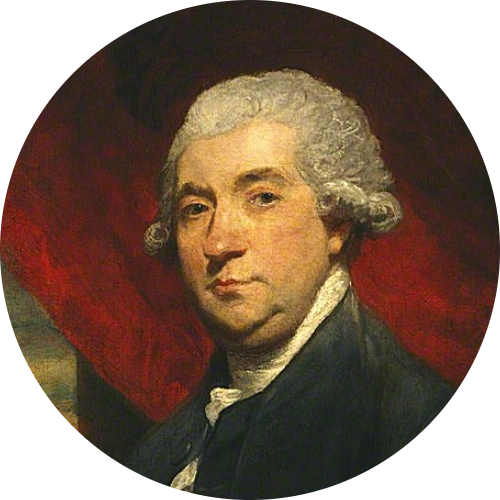James Beattie was a Scottish poet and philosopher, best known for his Essay on the Nature and Immutability of Truth (1770) and his poem The Minstrel (1771). Married (1767) to Mary Dunn, with whom he had two sons, James Hay (d. 1790) and Montagu (d. 1796).
Beattie was born in 1735, the son of a shopkeeper and small farmer. He was educated at Marischal College in Aberdeen, where he formed a lifelong friendship with abolitionist James Ramsay. In 1757 he was appointed master at Aberdeen Grammar School, and just a few years later in 1760, at the young age of 24, he became Professor of Moral Philosophy and Logic at his alma mater Marischal College, supposedly due to the influence of his friend Robert Arbuthnot of Haddo.
In 1770 he wrote the Essay on the Nature and Immutability of Truth, as an answer to the theories of David Hume. This gained him instant fame and led to an introduction to King George III, a government pension of £200 and the degree of LL.D. from Oxford. In 1771 and 1774 respectively was published the two volumes of his poem The Minstrel, which even won him the praise of Dr Johnson himself. Beattie had met the poet Thomas Gray some years earlier, during the latter's journey into Scotland, and Johnson wrote in his Lives of the Poets (1779-1781), that "[Gray] naturally contracted a friendship with Dr. Beattie, whom he found a poet, a philosopher, and a good man."
In 1783 Beattie was co-founder of the Royal Society of Edinburgh.
In contrast to his professional career, his personal life was marred with some degree of tragedy. In 1767 he married Mary Dunn, a daughter of the Rector of the Aberdeen Grammar School, and she bore him two sons. Mary, however, suffered from some unidentified mental disease and was eventually committed to Musselburgh Asylum. As if that wasn't bad enough, his two promising sons died in 1790 and 1796 respectively, at the ages of 22 and 18.
Following Beattie's death in 1803, An Account of the Life and Writings of James Beattie, LL.D., including many of his Original Letters was written by his friend, the eminent banker and literary executor of James Boswell, Sir William Forbes. It was published in 1806.
In 1773, Beattie was one of those illustrious Scots whom Boswell asked to extend invitations to Dr. Johnson in order to attract him to visit Scotland. Boswell wrote to Beattie from London that
"I now seriously believe Mr. Samuel Johnson will visit Scotland this year, but I wish that power power of attraction may be employed to secure our having so valuable an acquisition; and therefore I hope you will without delay write to me what I know you think, that I may read it to the mighty sage with proper emphasis, before I leave London, which I must do soon."1
As it happened, Beattie was in Edinburgh when he received the letter, and about to leave for London, and he promised in his short reply to Boswell, that "[I] hope to have the honour of paying my respects to Mr. Johnson and you about a week or ten days hence [in London]. I shall then do what I can to enforce the topic you mention [...]".1
Beattie's works, including The Judgement of Paris (1765), An Essay on the Nature and Immutability of Truth (1770), The Minstrel; or, The Progress of Genius (1771 and 1774), Dissertations Moral and Critical (1783), and his Elements of Moral Science (1790 and 1793, 2 vols.) are all available via AbeBooks, as is Sir William Forbes' An Account of the Life and Writings of James Beattie, LL.D.
